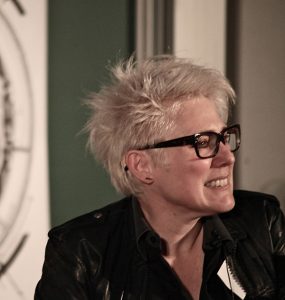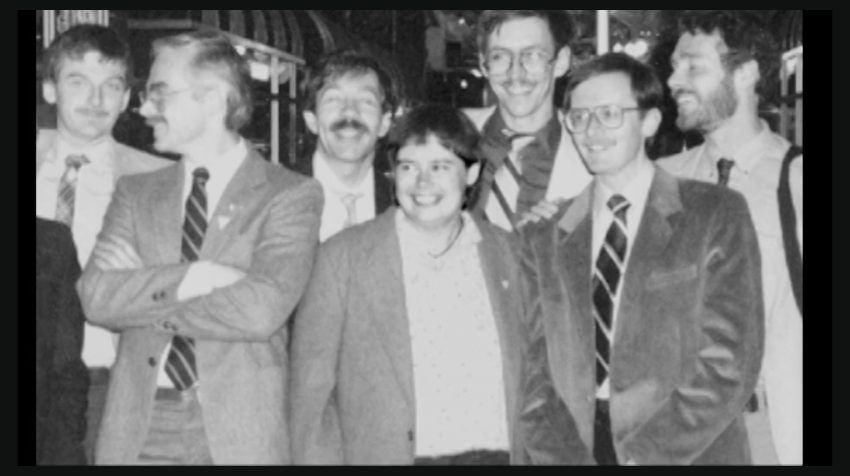
Members of the Body Politic, following a 1982 trial charging all members of the collective. The trial lasted one day and all members were acquitted. From left to right: Ken Popert, Ed Jackson, Gerald Hannon, Chris Bearchell, John Allec, Rick Bébout, Tim McCaskell
By: Mandy Byron This month marks the 47th anniversary of The Body Politic’s first publication., The archival records forms a significant part of The ArQuives’s collection. This year also marks the successful completion of archival processing of the entire collection, approximately 130 boxes of materials. The Body Politic fonds is now an organized and valuable historical resource for researchers to study and gain a clearer understanding of the inner workings of the collective and its impact on the LGBTQ+ liberation movement in Canada. _________________________________________________ … A few months following the 1971 We Demand! demonstration on Parliament Hill, a collective of young gay activists published Canada’s first gay liberation periodical – The Body Politic. According to the collective members, the publishing date was the date of the printer’s receipt (which is in our TBP fonds) – October 27th, 1971. The 5,000 copies were delivered on Thursday, October 28th just in time for the members of this newly minted collective to hit the streets and bars on Halloween weekend to hawk their 20-page paper. It should be noted that Wikipedia cites the “official” publication date as November 1, 1971; Nov/Dec is on the front page. As if following Newton’s 3rd law of physics – for every action (emerging gay liberation movement) there is an equal and opposite reaction – the Toronto Sun landed on newsstands across the city on Monday, November 1, 1971. This may be a coincidence, or not, but it’s interesting to note that The Sun’s deliberately reactionary and homophobic writing provoked a journalistic “attack and respond” over the near two decades of the TBP’s existence. Could The Sun have unwittingly contributed to mobilizing the movement even more? The Body Politic has a long and storied history including the Metro Toronto Police raid on December 30th 1977, following the publication of the controversial article “
Men Loving Boys Loving Men” in Issue 39. The Body Politic was taken to court following the raid by Toronto police. Though the members who were charged were acquitted in February 1979, again on appeal in February 1980, and finally in March 1981, the legal battle represented a significant drain of resources for the collective, which
published its final issue in 1987. This history is
well-documented. There are
timelines available, and there was even a
play at the Buddies in Bad Times theatre. Playwright Nick Green’s adaptation of The Body Politic story demonstrates his extensive research and his inclusion of the character Deb – a lesbian activist and a powerful and substantial female – animates the multiple voices of the women who contributed to The Body Politic.
Collective & Contributing Women
Over the lifetime of the collective, and since the periodical’s last publication date, The Body Politic has been often criticized for being an enclave of gay-cis-white-men. While the collective members were predominantly gay-cis-white-men, many women would join the collective and contribute as writers, photographers, editors, and organizers; women like writer and editor Gillian Rodgerson, who moved from Toronto to London, England in 1987, worked at Gay Times, edited Capital Gay and in 1997 became the editor of lesbian periodical Diva; writer and labour activist Gay Bell (whose archive is now part of The ArQuives collection); Sue (Johnny) Golding, who was a regular contributor, as well as being involved with Buddies in Bad Times Theatre; and writer and playwright Sunny (Sonja) Mills, who eventually became paid staff at TBP. And who can forget Jane Rule, American-born Canadian novelist, essayist, and short-story writer known for her exploration of lesbian themes who became a notable contributor to the periodical and spent two decades corresponding with Rick Bébout, TBP writer and editor. One woman who stands out because of her towering impact on the gay liberation movement as activist, and a member of The Body Politic is Chris Bearchell – the real life person who, in large part, informs Nick Green’s character Deb.
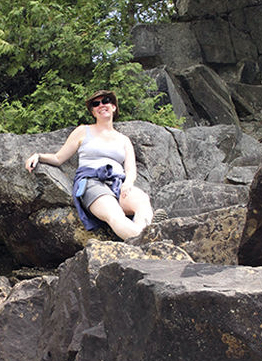
Photo of Gillian Rodgerson, by Devin Casey
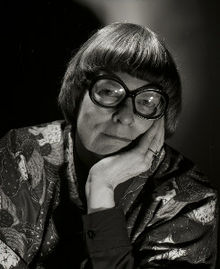
Photo of Jane Rule, by Alex Waterhouse Hayward
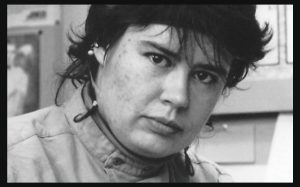
Photo of Chris Bearchell, by Kornelia Reich
In 1975, Chris was the first woman writer to join The Body Politic, then in 1978 she joined the TBP’s governing collective, and Chris was a stalwart, staying with the paper until its demise. She was also in the forefront of founding some of the first lesbian and gay organizations in Canada. She was a co-founder of the Lesbian Organization of Toronto (LOOT), and fought for the inclusion of non-discrimination against lesbians and gays in the Ontario Human Rights code. In 1978 Chris became involved with the Coalition to Stop Anita Bryant and in Lesbians Against the Right (LAR). In 1980, as the representative of the Canadian Association of Gays and Lesbians, Bearchell testified before the Special Joint Commission on the Constitution. In her opening remarks to the commission we witness her powerful argument that if Canada is to live up to its claims of pluralism and inclusion, gay and lesbian teachers should be allowed to be openly gay without fear of incrimination – “
The making of the Charter: The Voice of the People.” Bearchell’s leadership role following Toronto Police Force’s Operation Soap – 1981 Bathhouse Raids – is legendary. The night after the cops’ coordinated raids of bathhouses across the city a crowd assembled at
Yonge and Wellesley. Chris, on the speaker’s platform, inspired the crowd to channel their collective anger to demand change. The demonstration moved to 52 Division on Dundas Street, where Bearchell stood on a riser and famously rallied the crowd to a rendition of the chant “No more Shit!.” The crowd eventually landed at Queen’s Park where a phalanx of officers assaulted the demonstrators. The next day, The Sun’s cover story headline was “Gay Rage” over a picture of the officers who had removed their identifying badges – unwittingly providing evidence of their intentions.
Proud Lives: Chris Bearchell a Tribute, the documentary by award-winning filmmaker Nancy Nicol, which is included in The ArQuives’s digital collection, comprehensively outlines Chris Bearchell’s life history, capturing her essence, and her capacity as a pioneer and anti-discrimination activist. Chris Bearchell consistently fought for our rights. Unrelentingly loud and infinitely proud, Chris’ influence continues to be felt in Canada’s queer community beyond her untimely death in 2007. And the Archives is proud to have inducted her into The ArQuives’s
National Portrait Collection in 2003.
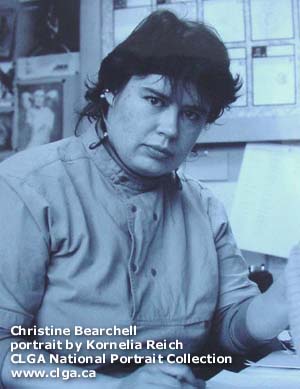
Christine Bearchell Portrait in The ArQuives National Portrait Collection, portrait by Kornelia Reich


